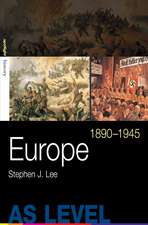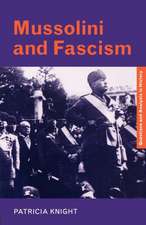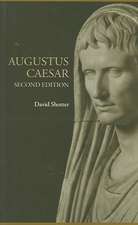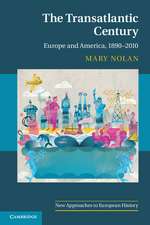Memorylands: Heritage and Identity in Europe Today
Autor Sharon MacDonalden Limba Engleză Hardback – 2 apr 2013
Drawing especially, though not exclusively, on cases, concepts and arguments from social and cultural anthropology, Memorylands argues for a deeper and more nuanced understanding of the cultural assumptions involved in relating to the past. It theorizes the various ways in which ‘materializations’ of identity work and relates these to different forms of identification within Europe. The book also addresses questions of methodology, including discussion of historical, ethnographic, interdisciplinary and innovative methods. Through a wide-range of case-studies from across Europe, Sharon Macdonald argues that Europe is home to a much greater range of ways of making the past present than is usually realized – and a greater range of forms of ‘historical consciousness’. At the same time, however, she seeks to highlight what she calls ‘the European memory complex’ – a repertoire of prevalent patterns in forms of recollection and ‘past presencing’.
The examples in Memorylands are drawn from both the margins and metropolitan centres, from the relatively small-scale and local, the national and the avant-garde. The book looks at pasts that are potentially identity-disrupting – or ‘difficult’ – as well as those that affirm identities or offer possibilities for transcending national identities or articulating more cosmopolitan futures. Topics covered include authenticity, temporalities, embodiment, commodification, nostalgia and Ostalgie, the musealization of everyday and folk-life, Holocaust commemoration and tourism, narratives of war, the heritage of Islam, transnationalism, and the future of the past.
Memorylands is engagingly written and accessible to general readers as well as offering a new synthesis for advanced researchers in memory and heritage studies. It is essential reading for those interested in identities, memory, material culture, Europe, tourism and heritage.
| Toate formatele și edițiile | Preț | Express |
|---|---|---|
| Paperback (1) | 297.23 lei 6-8 săpt. | |
| Taylor & Francis – 2 apr 2013 | 297.23 lei 6-8 săpt. | |
| Hardback (1) | 1010.60 lei 6-8 săpt. | |
| Taylor & Francis – 2 apr 2013 | 1010.60 lei 6-8 săpt. |
Preț: 1010.60 lei
Preț vechi: 1232.45 lei
-18% Nou
Puncte Express: 1516
Preț estimativ în valută:
193.37€ • 201.90$ • 160.04£
193.37€ • 201.90$ • 160.04£
Carte tipărită la comandă
Livrare economică 05-19 aprilie
Preluare comenzi: 021 569.72.76
Specificații
ISBN-13: 9780415453332
ISBN-10: 041545333X
Pagini: 320
Ilustrații: 20 black & white halftones
Dimensiuni: 156 x 234 x 28 mm
Greutate: 0.75 kg
Ediția:New.
Editura: Taylor & Francis
Colecția Routledge
Locul publicării:Oxford, United Kingdom
ISBN-10: 041545333X
Pagini: 320
Ilustrații: 20 black & white halftones
Dimensiuni: 156 x 234 x 28 mm
Greutate: 0.75 kg
Ediția:New.
Editura: Taylor & Francis
Colecția Routledge
Locul publicării:Oxford, United Kingdom
Public țintă
PostgraduateCuprins
Acknowledgments Prologue 1. The European Memory Complex: An Introduction 2. Making Histories: Europe, Tradition and Other Present Pasts 3. Telling the Past: The Multitemporal Challenge 4. Feeling the Past: Materiality, Embodiment and Place 5. Selling the Past: Commodification, Authenticity and Heritage 6. Musealization: Everyday Life, Temporality and Old Things 7. Transcultural Heritage: Reconfiguring Identities and the Public Sphere 8. Cosmopolitan Memory: Holocaust Commemoration and National Identity 9. The Future of Memory - and Forgetting References
Notă biografică
Sharon Macdonald is Anniversary Professor of Cultural Anthropology at the University of York, UK and Visiting Professor in the Institute of European Ethnology, Humboldt University, Berlin. Her authored books include Difficult Heritage (Routledge, 2008) andReimagining Culture, and, as editor, The Politics of Display (Routledge, 1997) and The Companion to Museum Studies (Choice Outstanding Academic Title, 2007).
Recenzii
"Memorylands offers a detailed mapping of the complex and varied ways in which memory, heritage and history interact to make the past present within Europe. Macdonald argues that this has profound implications for what she calls European cosmopolitan conviviality. Drawing on ethnographic research across a number of European countries, the book demonstrates why memory and heritage matter in terms of contemporary cultural policy, politics and cultural production. Macdonald draws on her own extensive research, supplemented by a wide-ranging synthesis of ethnographic writing, to make a decisive anthropological intervention into ongoing debates in memory and heritage studies." - Laurajane Smith, The Australian National University
"With an impressively light touch and a no less impressively wide-ranging grasp of complex arguments, Sharon Macdonald has given us a coherent, convincing, and historically deep account of what heritage has been and where it may be going. Through her concept of ‘past presencing’, she successfully traces and illustrates its socio-cultural trajectories through sometimes wildly differing terrains of memory, nostalgia, and conservation. Her examination of the European contexts in which so much of the interest in heritage has emerged, moreover, is uncompromisingly anthropological, allowing her to offer an enlightening reversal of the Eurocentrism with which the topic has hitherto so often been approached." - Michael Herzfeld, Harvard University.
"With an impressively light touch and a no less impressively wide-ranging grasp of complex arguments, Sharon Macdonald has given us a coherent, convincing, and historically deep account of what heritage has been and where it may be going. Through her concept of ‘past presencing’, she successfully traces and illustrates its socio-cultural trajectories through sometimes wildly differing terrains of memory, nostalgia, and conservation. Her examination of the European contexts in which so much of the interest in heritage has emerged, moreover, is uncompromisingly anthropological, allowing her to offer an enlightening reversal of the Eurocentrism with which the topic has hitherto so often been approached." - Michael Herzfeld, Harvard University.
Descriere
Memorylands investigates the nature of heritage, memory and understandings of the past in Europe today. It addresses the ongoing apparent ‘memory obsession’ evident in a proliferation of museums, heritage sites and memorials, and arguments about the changing nature of identities – especially national, European and global. Its aim is to provide a new perspective on the place of the past, especially as manifest in museums, heritage and memorials, in different parts of Europe.















